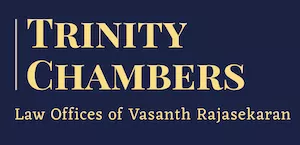- within Litigation and Mediation & Arbitration topic(s)
- with readers working within the Law Firm industries
- within Real Estate and Construction, Government, Public Sector and Insolvency/Bankruptcy/Re-Structuring topic(s)
- with Finance and Tax Executives
Introduction
In NHAI v. Kishorbhai Valjibhai Jethani [R/ First Appeal No. 4705 of 2023] the Gujarat High Court dismissed a series of appeals filed by the National Highways Authority of India ("NHAI") under Section 37 of the Arbitration and Conciliation Act, 1996 ("A&C Act"). The High Court upheld the lower Court's decision rejecting NHAI's applications under Section 34 of the A&C Act on the ground of delay in filing. This judgment reaffirms the principle that statutory timelines in arbitration proceedings must be strictly adhered to, and procedural lapses cannot be condoned merely on account of administrative delays or internal approval processes. In this article, we navigate through the facts of the case and the findings rendered by the High Court.
Brief Facts
The dispute revolved around land acquisition for national highway development. The NHAI had acquired land from private landowners under the provisions of the National Highways Act, 1956. Compensation for the acquisition was determined by the competent authority, following which the aggrieved landowners sought arbitration under Section 3G(5) of the 1956 Act. The arbitration was conducted by the Collector of Bhavnagar, acting as the arbitrator, who passed multiple awards enhancing the compensation payable to the landowners.
Dissatisfied with the arbitral awards, the NHAI sought to challenge them under Section 34 of the A&C Act before the civil Court. However, there was a delay of approximately 200–230 days in filing these challenges. NHAI sought condonation of delay under Section 34(3), contending that the limitation period had not begun as it had not received a properly signed copy of the arbitral awards.
The civil Court rejected the Section 34 applications on the ground that they were filed beyond the prescribed limitation period, leading NHAI to file first appeals under Section 37 before the Gujarat High Court.
Arguments from Both Sides
NHAI contended that the limitation period under Section 34(3) had not commenced, as it had not received a signed copy of the award from the arbitrator. Relying on the Supreme Court's rulings in State of Maharashtra v. ARK Builders Pvt. Ltd. [(2011) 4 SCC 616] and Union of India v. Tecco Trichy Engineers & Contractors [(2005) 4 SCC 239], it argued that the period of limitation under Section 34(3) must be counted from the date of actual receipt of a signed copy of the award. NHAI asserted that the copy it received was signed by the Chitnis to the Collector rather than the arbitrator, and hence, the limitation period never commenced.
The landowners opposed the plea, contending that NHAI had acknowledged receipt of the award and had even taken steps pursuant to it, including filing an application under Section 33 of the A&C Act for clarification of the award. It was argued that NHAI's reliance on procedural technicalities was an afterthought to circumvent the delay. Further, the Supreme Court in Dakshin Haryana Bijli Vitran Nigam Ltd. v. Navigant Technologies Pvt. Ltd. [(2021) 7 SCC 657] had held that an award takes legal effect only when it is signed by the arbitrator, but in this case, there was no dispute over the arbitrator's issuance of the award.
Findings of the High Court
The Gujarat High Court rejected NHAI's contentions and upheld the civil Court's decision dismissing the Section 34 applications. The High Court made several crucial findings:
Firstly, it noted that NHAI had admitted in its own Section 34 application that it had received a copy of the award on 28 February 2019. This was evidenced by its application under Section 33(1) of the A&C Act seeking clarifications on the award. Having accepted receipt and acted upon the award, NHAI could not later claim that the limitation period had not commenced due to a technical deficiency in the signature.
Secondly, the High Court emphasized that Section 34(3) provides a strict limitation period of three months, with a maximum extension of 30 additional days at the High Court's discretion, beyond which a challenge to the award is impermissible. The delay of 200–230 days was well beyond this statutory period, making the petition time-barred.
Thirdly, the High Court dismissed NHAI's argument that administrative delays, internal approvals, or procedural requirements justified condonation of delay. It reiterated the settled principle that government authorities cannot claim special privileges in limitation matters merely due to bureaucratic processes.
Additionally, the High Court found that NHAI's argument regarding the absence of a signed copy was a new plea raised for the first time in the Section 37 appeal, which had not been argued before the civil Court. Courts do not allow fresh grounds of challenge at the appellate stage if they were not raised in the original proceedings.
Finally, the High Court reiterated that judicial interference in arbitration matters must be minimal, and the statutory timelines under Section 34(3) were designed to uphold the finality and efficiency of arbitral awards. Since NHAI had not demonstrated any exceptional circumstances warranting judicial intervention, the appeals were dismissed.
Comment
For practitioners and entities engaged in arbitration, this case brings out the critical importance of timely filing under Section 34. Government bodies, in particular, must ensure swift internal decision-making and procedural compliance to avoid the risk of losing legal recourse due to procedural delays.
The content of this article is intended to provide a general guide to the subject matter. Specialist advice should be sought about your specific circumstances.



